A Merchant Category Code (MCC) is a four-digit identifier given to businesses by credit card networks to classify the nature of their products or services. For companies in the travel sector, this seemingly straightforward code is crucial in shaping transaction processing and determining applicable fees. MCCs affect multiple facets of payment processing, such as interchange fees, chargeback handling, and customer safeguards, making them essential for travel-related businesses. The precision of an MCC designation can significantly influence a company's financial performance, especially in terms of managing transaction expenses and minimising the likelihood of payment conflicts and chargebacks.
MCC in Travel Payments
For travel companies, grasping and managing their Merchant Category Code (MCC) is crucial for minimizing transaction costs and reducing chargebacks. MCCs have a direct impact on the interchange fees that travel businesses incur when processing payments. Given that the travel sector often involves higher-value transactions, accurately classifying these transactions under the appropriate MCC can significantly influence the fees charged. For instance, a travel agency offering vacation packages may be classified differently than one that specialises exclusively in airfare or hotel reservations. Each classification can entail distinct fee structures, making it vital for travel companies to ensure they are categorised correctly to avoid incurring unnecessary higher fees.
Additionally, MCCs are instrumental in determining chargeback rates and consumer protections. The assigned MCC can influence the likelihood of a transaction being disputed. Certain categories of travel services may provide consumers with enhanced protection or easier access to chargebacks under specific conditions, potentially leading to a higher incidence of disputes for businesses within those categories. By accurately classifying transactions under the right MCC, travel companies can effectively manage chargeback risks and minimise disputes arising from misclassification. Furthermore, MCCs can affect how payment processors and banks approach various types of travel transactions, particularly regarding international payments or high-value sales.
Furthermore, travel businesses navigate a complex landscape that includes airlines, hotels, tour operators, and third-party vendors. Each of these entities may fall under different MCC classifications, complicating payment processing and fee evaluations when multiple services are combined into a single transaction. A thorough understanding of MCC nuances enables travel companies to streamline their payment processes, ensuring optimal efficiency.
MCC Challenges
One of the primary obstacles for travel businesses regarding MCCs is the necessity of being assigned the appropriate code. An incorrect MCC assignment can result in elevated transaction costs, as certain categories may incur higher interchange fees. For instance, if a travel agency is misclassified under a more costly MCC, it could face unnecessary charges on every transaction. Moreover, an erroneous MCC designation might influence chargeback rates and customer protections, potentially leading to increased disputes and financial setbacks for the business.
Another significant challenge lies in the intricacies of managing multiple MCCs within a travel company's operations. Large travel firms that provide a diverse array of services, such as flights, lodging, car rentals, and tours, may fall under various MCC classifications based on the type of transaction processed. Accurately categorising each transaction under the correct MCC can be challenging, particularly when handling bundled services or transactions involving third-party vendors. This complexity necessitates that travel companies uphold a high degree of precision in their payment processing systems to prevent misclassification and its related expenses.
Additionally, international transactions introduce further complications. Travel businesses frequently engage in cross-border payments, where varying regional MCC codes and payment regulations can influence fee applications and transaction processing. Navigating this complexity demands a thorough understanding of both domestic and international payment systems, as well as the capability to collaborate with acquiring banks and payment processors to ensure precise MCC assignments. Neglecting this can result in inefficiencies, increased costs, and potential disputes with banks or customers.
How Felloh can Help with MCCs
Felloh empowers travel businesses to effectively manage Merchant Category Codes (MCCs) by ensuring precise transaction classification, which is essential for enhancing payment processing and reducing unnecessary expenses. By collaborating closely with acquiring banks and payment networks, Felloh guarantees that travel companies receive the appropriate MCCs tailored to their specific services. This proactive approach helps prevent misclassification into higher-fee categories, thereby lowering the overall transaction costs linked to interchange fees.
Moreover, Felloh’s platform aids travel companies in optimising MCC assignments for intricate transactions that may involve multiple services or international payments. By offering real-time insights into payment processing and transaction data, Felloh ensures that every transaction—whether for airfare, hotel accommodations, or bundled holiday packages—are accurately categorised. This precision minimises the likelihood of chargebacks and disputes, as customers are less inclined to contest transactions processed under the correct MCC.
In addition, Felloh provides transparent reporting and sophisticated monitoring tools that enable travel businesses to track their MCC usage and transaction fees in real time. This level of visibility allows companies to swiftly identify any discrepancies in MCC assignments and make necessary adjustments to enhance payment processing efficiency. By utilising these resources, travel companies can strengthen their relationships with acquiring banks and payment networks, streamline their payment operations, and boost overall profitability. Felloh’s all-encompassing support in managing MCCs allows travel businesses to concentrate on delivering exceptional services while alleviating the complexities and costs associated with payment processing.









.svg)





